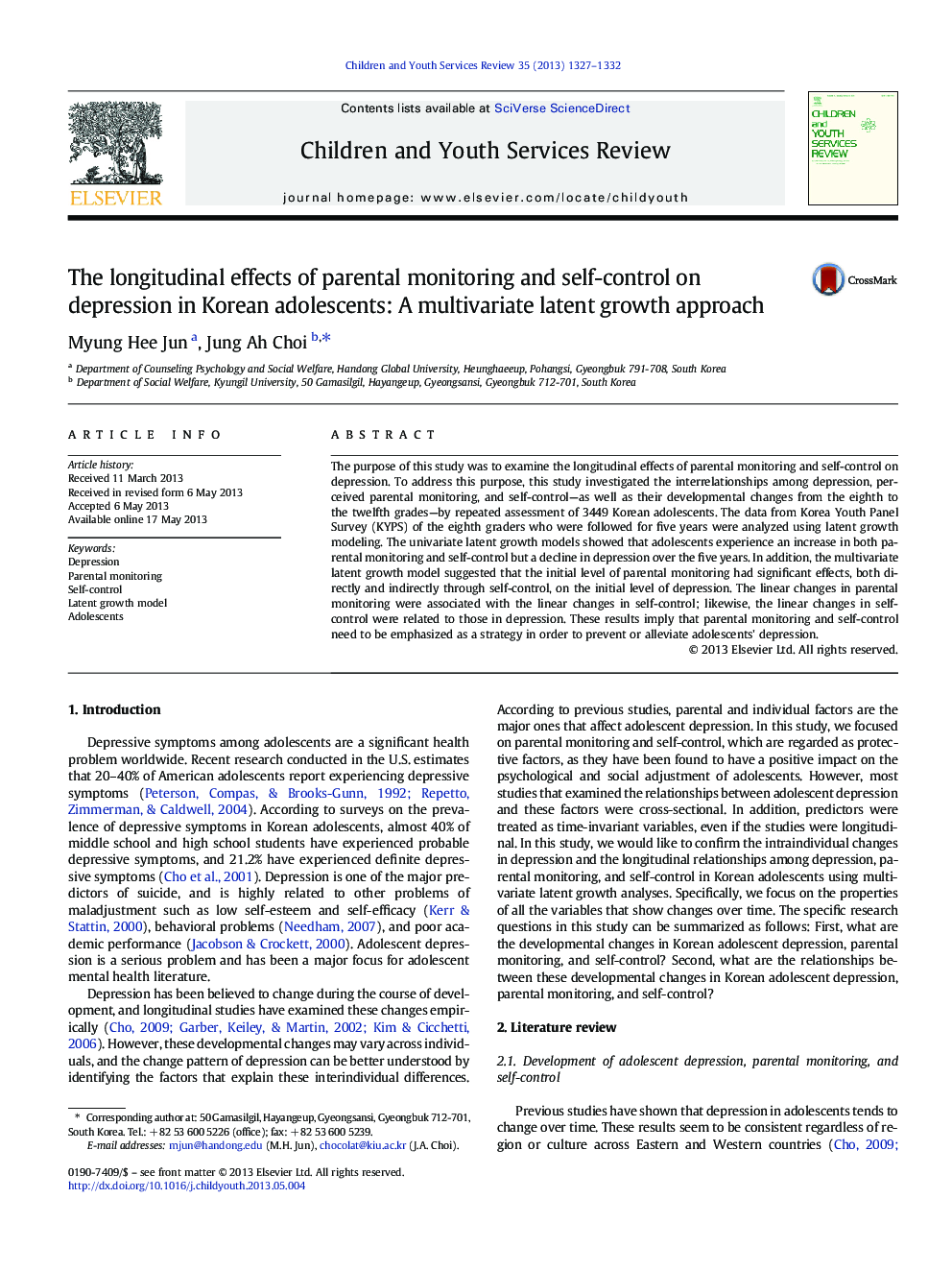| Article ID | Journal | Published Year | Pages | File Type |
|---|---|---|---|---|
| 10311586 | Children and Youth Services Review | 2013 | 6 Pages |
Abstract
The purpose of this study was to examine the longitudinal effects of parental monitoring and self-control on depression. To address this purpose, this study investigated the interrelationships among depression, perceived parental monitoring, and self-control-as well as their developmental changes from the eighth to the twelfth grades-by repeated assessment of 3449 Korean adolescents. The data from Korea Youth Panel Survey (KYPS) of the eighth graders who were followed for five years were analyzed using latent growth modeling. The univariate latent growth models showed that adolescents experience an increase in both parental monitoring and self-control but a decline in depression over the five years. In addition, the multivariate latent growth model suggested that the initial level of parental monitoring had significant effects, both directly and indirectly through self-control, on the initial level of depression. The linear changes in parental monitoring were associated with the linear changes in self-control; likewise, the linear changes in self-control were related to those in depression. These results imply that parental monitoring and self-control need to be emphasized as a strategy in order to prevent or alleviate adolescents' depression.
Related Topics
Health Sciences
Medicine and Dentistry
Perinatology, Pediatrics and Child Health
Authors
Myung Hee Jun, Jung Ah Choi,
